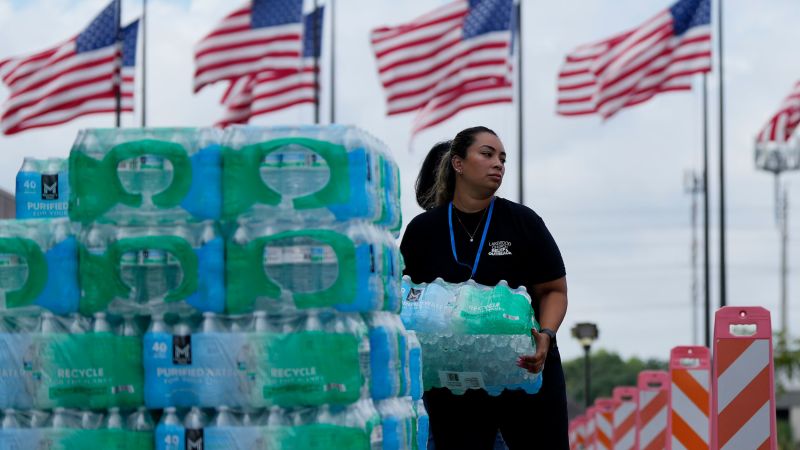
Millions of residents in Texas are left without power and facing dangerous heat after Hurricane Beryl made landfall on July 9, 2024. The storm brought heavy rain, flooding, and strong winds that caused extensive damage to infrastructure and homes. According to various sources, at least 18 people have been reported dead as a result of the hurricane in Texas and Louisiana. Among the fatalities were an elderly woman who was killed when a tree fell into her second-story bedroom during the storm, and two individuals who died from carbon monoxide poisoning while using generators to power their homes. The heat wave that followed Beryl's passing has exacerbated the situation, with temperatures reaching over 105 degrees Fahrenheit in some areas. Power outages have affected more than 2 million customers, primarily in Galveston and Houston. Restoring electricity is expected to take days or even weeks due to the extensive damage caused by the storm.
Beryl was the first hurricane of the Atlantic season to make landfall in the United States after tearing a devastating path through the Caribbean, where it caused at least nine other deaths. The storm brought 14 tornadoes to Texas, Louisiana, and southern Arkansas. Parts of Ohio, Indiana, Michigan, Illinois, and western Kentucky and southern Indiana are under a level 2 of 5 severe thunderstorm threat due to the remnants of Beryl.
Texas Governor Greg Abbott has declared a state of emergency in response to the storm damage and power outages. The Federal Emergency Management Agency (FEMA) has been deployed to assist with recovery efforts, offering a 75% reimbursement for debris cleanup. CenterPoint Energy, the primary utility company in Houston and surrounding areas, is working on restoring power as quickly as possible.
The extreme heat conditions have posed additional challenges for emergency responders and residents alike. Officials are urging people to check on their neighbors, stay hydrated, and avoid using generators indoors due to the risk of carbon monoxide poisoning. Cooling centers have been set up in various locations throughout the affected areas.
Beryl's impact is not limited to Texas. The storm has also caused flooding rains and tornadoes in other parts of the country, including Louisiana, Ohio, Indiana, Michigan, and Canada.

